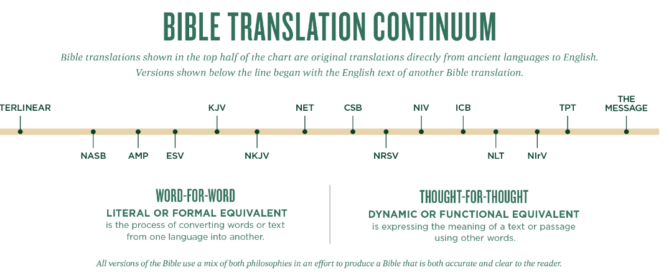The Lord’s Supper: Part Three
By Pastor Josh Wamble
At the beginning of the month, we started a short series exploring what the Bible says and what Christians have thought about the Lord’s Supper throughout history. If you have missed some of these services, you can listen to the audio of them here: Part One: 2/5/23, Part Two: 2/12/23, and Part Three: 2/19/23. You can also read summaries of the first two parts here: Part One and Part Two. Below, we will briefly summarize the five questions we talked about this past Sunday (2/19).
Who Should Participate in the Lord’s Supper?
Different Christian traditions have different understandings of who should be allowed to participate in the Lord’s Supper. Most (but not all) churches and denominations believe that only believers should be allowed to participate. Some groups think that only members of their specific church should partake. Others think anyone who is part of a church in the same denomination should take part. I argued that there are four criteria that should be considered.
-
- Professing Believers
Only believers should participate in the Lord’s Supper ceremony. Because of what the Lord Supper is and what it represents, it really doesn’t make sense that someone who is not a believer would want to anyway. In the Lord’s Supper we are looking back at the cross as our foundation of salvation and looking forward to the return of Jesus as the hope of our salvation. Why would someone who does not believe either of those things are true or is not trusting in those truths for his salvation want to symbolize that it is true? As we said, the Lord’s Supper is a sermon in pictures or in action. Why would someone want to preach (through his actions) that he doesn’t think is true?
Beyond those questions, the Bible is explicit that only believers should take part. In 1 Cor. 11:24-25, Paul tells the church to eat the bread and drink the wine/juice in remembrance of Jesus’s death and in anticipation of His return. As we said above, someone who doesn’t believe those things are true would not be doing that. 1 Cor. 11:29 also tells us to rightly judge (or discern/recognize) the body as we are eating and drinking. Whether that refers to the body of Jesus or the church (the body of Christ), again someone who is not believing is not rightly doing that. Finally, in 1 Cor. 10:16-17, Paul says that when the church celebrates the Lord’s Supper we are sharing in the body and blood. Once again, a nonbeliever is not sharing in Jesus’s body and blood; so, she should not act like she is. (For more evidence of this in 1 Cor. 5:9-11, see number 3 below.)
The Lord’s Supper is only for professing believers.
-
- Professing Believers Who Have Been Baptized
In our Focus in February series in 2022, we explored the topic of baptism the way we are with the Lord’s Supper this year. Those discussions can be heard here, here, and here. We said that baptism is the public profession of faith. Baptism is how a believer declares publicly before the church and the world that he has turned his back on his old way of life and has submitted himself to Jesus’ lordship. A person (even a believer) who has not declared that she has renounced her old life and started following Christ, should do so before publicly declaring that she is devoted to continuing to follow Christ. She should be baptized quickly and then participate in the Supper frequently.
Baptism is also an act of obedience to the command of Christ. In 1 Cor. 11:28, Paul tells believers to examine themselves before participating in the Lord’s Supper. When a believer who has not yet been baptized examines himself, he should come to the conclusion that he is in disobedience. Again, he should be baptized soon and then participate in the Supper frequently after that.
Because of our conviction that proper baptism is only performed by the believer being fully immersed in water, we believe a person should be baptized that way before taking part in the Lord’s Supper.
The Lord’s Supper is only for professing believers who have been baptized.
-
- Professing Believers Who Have Been Baptized (by Immersion) and are Members in Good Standing in a Local Church
In 1 Cor. 5:9-11, Paul is instructing the church on how to treat a believer who is part of their church who is refusing to repent of a very grievous sin that has affected the whole congregation. In that passage, he tells the church that they are not to judge those outside the church, but they are to judge those inside the church. He doesn’t mean to judge in the sense of pronouncing judgment on someone. It is not our place to cast verdicts of whether someone is a believer or not a believer. What he means is to judge in the sense of being discerning and wise. He tells them that when someone is acting like an unbeliever (refusing to repent) that we should treat them like one with hopes and prayers that they will repent and prove that they really are believers. We should also make efforts to draw them to repentance—pleading with them to do so as we remind them of the gospel that they once professed to believe.
One of the things he tells them to do is to refuse even to eat with them. We argued that he is not talking about eating a regular meal but that this is a reference to the Lord’s Supper. In Acts 2:42 and 2:46, Luke uses that same idea to describe the life of the early church in Jerusalem. He says that they devoted themselves “to the apostles’ teaching and the fellowship, to the breaking of bread and the prayers.” “The breaking of bread,” many think, is referring to the Lord’s Supper. He says that they were daily “breaking bread in their homes, they received their food with glad and generous hearts.” Again, I think this is a refence to the Lord’s Supper that was often a part of a larger meal (as it was in Matthew 26, when Jesus instituted the Supper at the end of the Passover meal).
If that understanding is correct, then Paul is telling the Corinthian church not to have the Lord’s Supper with someone whose life displays an unbelieving heart (by refusing to repent of an open sin that is causing division in the church).
The Lord’s Supper is only for professing believers who have been baptized (by immersion) and are members in good standing of a local church.
-
- Professing Believers Who Have Been Baptized (by Immersion) and are Members in Good Standing in a Local Church Who are Old Enough to Understand What the Lord’s Supper is and What it Represents
The Bible doesn’t give a specific age limit on who should participate in the Lord’s Supper, and we shouldn’t either. However, the Bible does offer some guidance that parents and churches should consider when deciding whether or not a child should take part in the Lord’s Supper.
As already noted, 1 Cor. 11:28 tells us to examine ourselves before joining in the Supper, and 1 Cor. 11:29 tells us to judge/discern/recognize the body rightly. A child who is a believer who has been baptized and is a member of the church should also be mature enough to examine himself and rightly understand the meaning and purpose of the Lord’s Supper before he participates.
The Lord’s Supper is only for professing believers who have been baptized (by immersion), are members in good standing of a local church, and are old enough and have the maturity to examine themselves and understand the meaning and purpose of the Lord’s Supper.
How Should We Participate in the Lord’s Supper?
In 1 Cor. 11:27-34, Paul cautions the church against having the Lord’s Supper inappropriately and warns us of serious consequences for doing so.
First, he tells us not to eat or drink in an unworthy manner (1 Cor. 11:27). One church leader explained that the problem is not unworthy participants but unworthy participation. Paul is not telling us to be careful that we are worthy—we aren’t. We are all rebellious and disobedient. None of us have loved God with all of our heart, mind, soul, or strength, but we have been invited to the feast anyway! He is telling us to be careful that we participate in a worthy manner. Are we eating and drinking with faith—trusting that Jesus’ sacrifice has covered our sin and our guilt and believing that He is ruling over His church right now and will come again one day to judge the earth and reward His people? Are we confessing and repenting of sin or letting it root its way into our heart? Are we fighting sin in our lives and helping others in the church to do likewise? Are we taking sin seriously?
Second, he tells us to make sure that we are judging the body rightly (1 Cor. 11:29). ‘The body” may refer to Jesus’ physical body, but I think it refers to the church—the body of Christ. Are you loving your fellow church members? Are you living a life in deference to others and their needs? Are you committed to one another? This is a major part of the problem with how the Corinthians were celebrating the supper that Paul is addressing in this part of his letter.
Where or When Should We Participate in the Lord’s Supper?
This question doesn’t have in mind whether or not there is a specific location or a specific time for observing the Lord’s Supper. Instead, we want to think about the circumstances and context surrounding when we have the Supper, where we have the Supper, and who we share the supper with.
It is our conviction that the Lord’s Supper is an ordinance given to the local church. Five times in 1 Cor. 11:17-39 (vv. 17, 18, 20, 33, and 34) Paul uses a phrase like “when you come together.” Clearly, his instructions about the Lord’s Supper are centered on a regular gathering of the church. Churches should observe the Lord’s Supper together, but this brings up several questions.
Should individuals or groups of individuals (such as family gatherings or wedding ceremonies) observe the Lord’s Supper together? What about smaller groups of church members? Should a church’s youth group or men’s or women’s ministry observe the Lord’s Supper when they are gathered (at a camp or retreat, for example)? What about a group of church members who are on a mission trip? What about para-church organizations (mission agencies, conferences or retreats, Christian schools, or etc. that exist to help and support local churches)? Should those groups celebrate the Lord’s Supper together?
In some ways these are hard questions. Perhaps you have been in one of these situations before. It is always a little awkward to not take part in something everyone else is doing. Often, we find ourselves in these situations with people that we love and like. We might fear that our decision to let the bread and wine/juice pass by us without taking them could be interpreted as us thinking that we are better than those around us or thinking that we have a better theology or belief system or just that we take the Lord’s Supper more seriously. Sometimes, the response might be to ask us to explain why we are deciding not to take part or for our friends to try and explain to us why we are wrong and should just go ahead and participate. These situations can be very awkward and uncomfortable, and it is often easier just to participate without thinking too much about it.
However, we should think about everything we do in worship to the Lord, and the passages regarding the Lord’s Supper explicitly tell us to examine ourselves and discern what we are doing before we eat and drink. We should take some time to think about these things. Because the Lord’s Supper is given to local churches to celebrate together and is related to the practice of church discipline (“do not even eat with such a one”), only churches should observe the Lord’s Supper. This means that individuals, families, wedding parties, para-church organizations, and other groups that are not churches should not observe the Lord’s Supper together.
The question about subgroups of a church (youth group, men’s/women’s groups, mission teams, etc.) is a little more complicated. However, because of what the Lord’s Supper is and what it represents, I think our normal practice should be to observe the Lord’s Supper when the church is gathered together in its regular worship service.
Of course, we don’t want to make a rule or put a regulation in place that is more restrictive than what the Bible says or where the Bible doesn’t give any explicit command at all, but we should be thinking about these things, and our practice should be based on the principles and understandings that are given in scripture.
How Often Should We Observe the Lord’s Supper?
Like the question on age, the Bible does not explicitly give us instruction on how often we should observe the Lord’s Supper. Some churches do so quarterly (4 times per year), some monthly, some weekly. In Acts 2:42, we read that the early church in Jerusalem was continually devoting itself to the breaking of bread. Does this mean they were observing the Lord’s Supper daily? Many Catholic churches have a mass every day. In Acts 20:7, Paul says that the church in Ephesus gathered on the first day of the week to break bread. Does this mean that they gathered for this purpose on the first day of every week or just the week that Paul was in town? We are not given straightforward and binding answers to these questions anywhere in the Bible.
Sometimes, people say that churches should observe the Lord’s Supper more often (weekly or monthly) because not doing so would cause the church to miss out on God’s grace or because not doing so would be disobedient to scripture. We’ve already pointed out that the Bible never gives a clear cut command regarding how often the Lord’s Supper should be observed. All we see are examples of when other churches in previous times did so—and even these examples are not very clear. Beyond that, we do not believe the Lord’s Supper conveys the grace of God the way the Catholic or Lutheran churches do; so, believers are not missing out on that grace by not observing the Lord’s Supper more often.
Others argue that the Lord’s Supper should be observed less often. Sometimes they will say that observing the Lord’s Supper more often just increases the danger. If it is possible to have the Lord’s Supper in an unworthy way and if doing so endangers people of serious consequences, then we should limit the frequency with which the Lord’s Supper is celebrated. Everyone has fewer chances of doing it wrongly if we are not doing very often. Others say it is better to have the Lord’s Supper less frequently because this helps to preserve its significance or meaning. The more often something is done, the more common it becomes; so, we should limit how often we have to Lord’s Supper in an attempt to preserve its weighty and serious character. However, just because something is done often doesn’t make it less significant. We practice other elements of worship regularly, and they are still meaningful and have significance. In each worship service we sing, pray, preach, read scripture, and share fellowship, and doing so often doesn’t strip them of their significance or meaningfulness.
Here we observe the Lord’s Supper on the first Sunday of each month. That is a significant in crease in frequency from just a few years ago when we were having it once each quarter. We like it. It is a special time for our church. Maybe we should consider having the Lord’s Supper more often, but the Bible gives no clear commands on this question.
Who Should Serve the Lord’s Supper?
The Bible also doesn’t tell us who should serve the Lord’s Supper. In fact, the Bible doesn’t put any restrictions in place at all. As regards who distributes the bread and juice, I think anyone can regardless of age, sex, dress, or any other descriptions.
As far as who leads the service, we should be a little more discerning. We should make sure that the person leading us in the Lord’s Supper understands and is able to explain what the Lord’s Supper is and why we observe it. He should be able to warn others with the warning we find in scripture, and he should be taken seriously enough for these warnings to have some weight to them. Since we said that in observing the Lord’s Supper and there is a need for explanation, perhaps we should limit who leads this service to someone who is qualified to preach.
This study on the Lord’s Supper has been really good, and we have considered several questions, but you may have others. If you do, please let us know. You can email or text your question to me or one of your other pastors, or you could ask one of us in person the next time you see us. At this week’s Sunday evening service (2/26 6:00pm) we will spend the entire doing nothing but answering these kinds of questions. All four of our pastors will be on stage discussing these issues and questions together. We would prefer for you to be at that service in-person and ask your question for the benefit of everyone listening. We hope to see you then!







